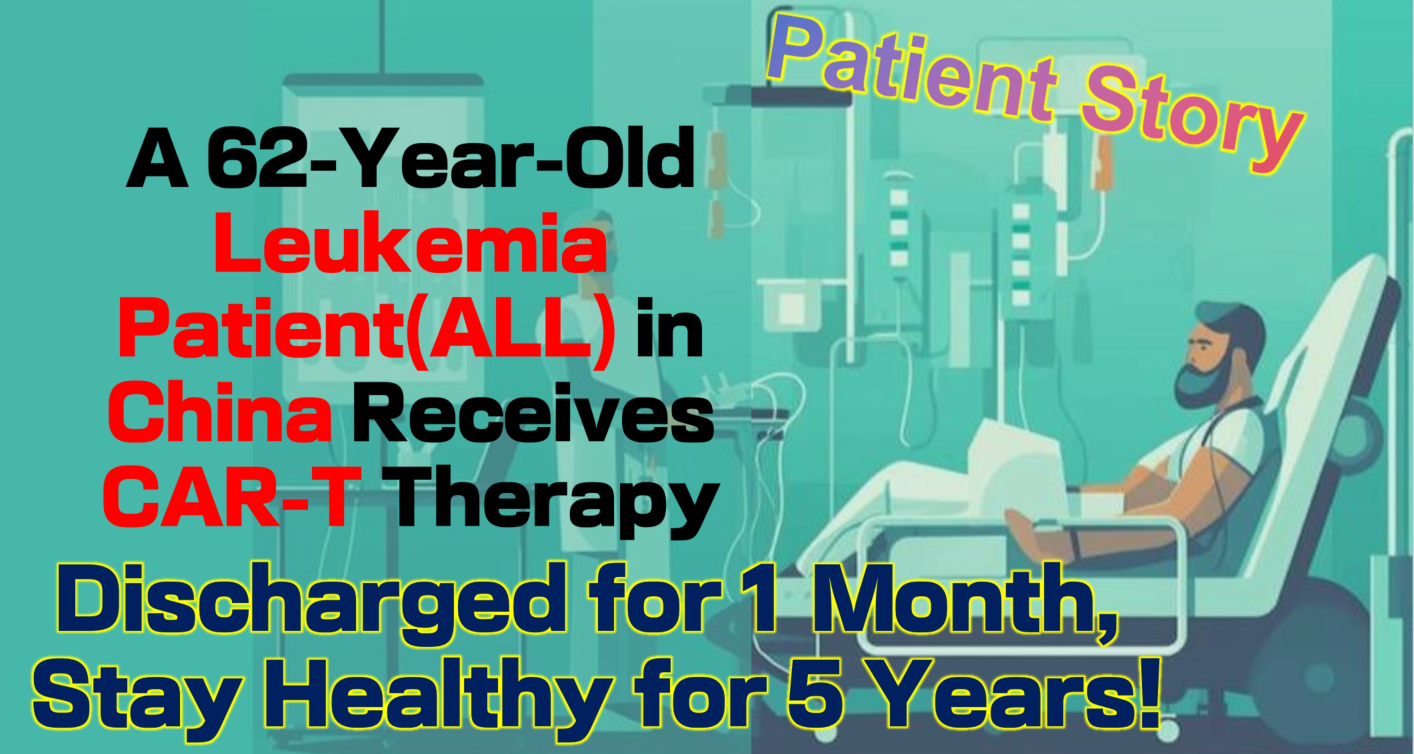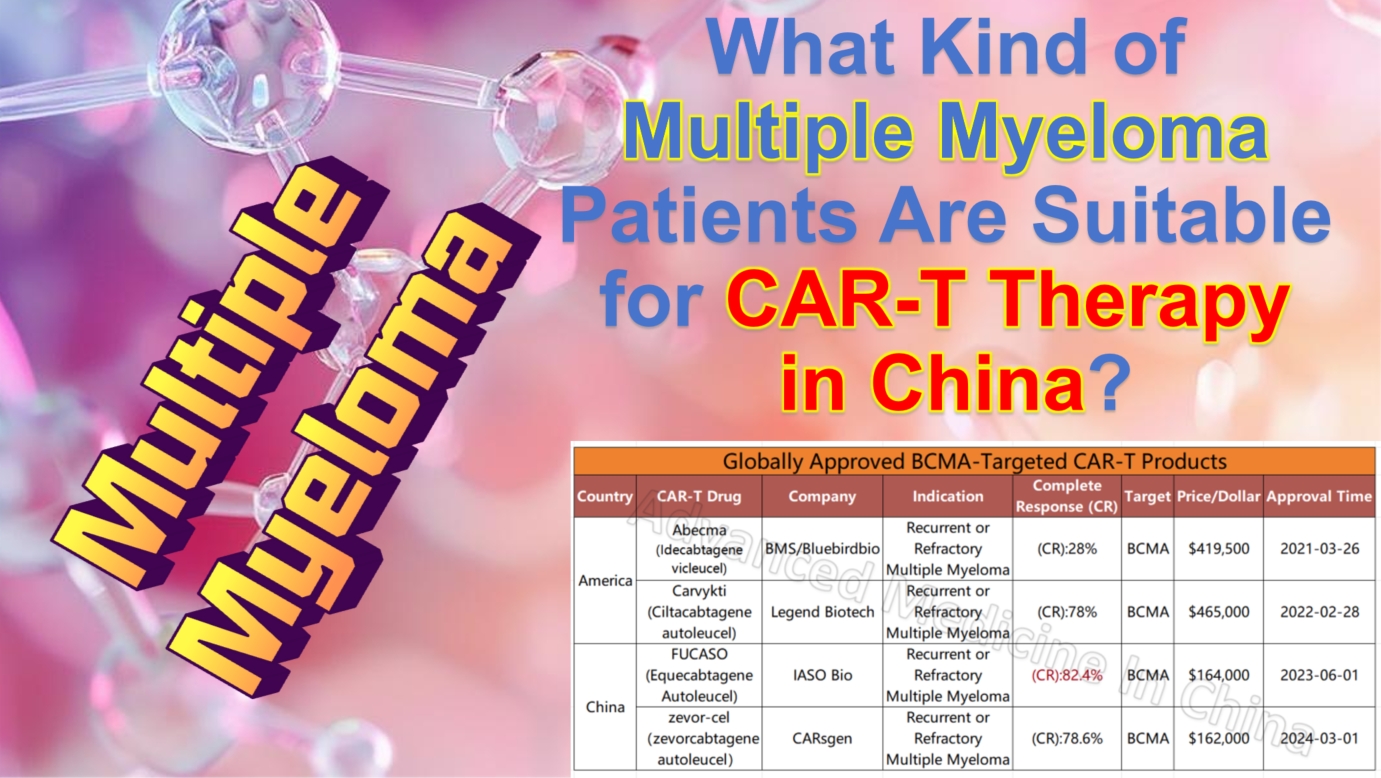Warning: Trying to access array offset on value of type bool in /www/wwwroot/www.medtourcn.com/wp-content/themes/medical-directory/framework/theme/medicaldirectory-image.php on line 78
Warning: Trying to access array offset on value of type bool in /www/wwwroot/www.medtourcn.com/wp-content/themes/medical-directory/framework/theme/medicaldirectory-image.php on line 79

A 62-Year-Old Leukemia Patient in China Receives CAR-T Therapy, Discharged After One Month, and Still Healthy After Five Years!
A 62-Year-Old Leukemia Patient in China Receives CAR-T Therapy, Discharged After One Month, and Still Healthy After Five Years!

Patient Story
#Leukemia #CAR_Therapy #CancerSurvivor #ChineseHealthcare#PatientStory
Acute lymphoblastic leukemia (ALL) is a type of leukemia that originates from B or T lymphoid progenitor cells. Leukemia cells proliferate abnormally in the bone marrow, suppressing normal hematopoiesis, leading to anemia, thrombocytopenia, and neutropenia.
Patient Story:
In 2019, 62-year-old Mr. Ke from China sought treatment at multiple hospitals due to weakness and fatigue, but no diagnosis was made. After being transferred to the hematology department and undergoing a bone marrow biopsy, he was finally diagnosed with acute lymphoblastic leukemia (ALL). Despite undergoing numerous chemotherapy sessions, his condition worsened, and his health deteriorated further.
In this challenging situation, with the help of the Advanced Medicine In China team, Mr. Ke transferred to a renowned hospital in Guangdong, China, to try the advanced CAR-T cell therapy. This was a bold decision after two years of failed chemotherapy attempts.
CAR-T Therapy: A New Hope for Leukemia Treatment
CAR-T cell therapy is a groundbreaking treatment that modifies a patient’s T cells to recognize and attack cancer cells. In early 2019, Mr. Ke received CD19 CAR-T therapy combined with a tumor DC vaccine. His T cells were reprogrammed and reinfused to fight leukemia cells.
The treatment process wasn’t easy. Although initially planned for discharge within days, he experienced high fever and lung infections during hospitalization. However, with timely intervention from the Chinese medical team, these complications were effectively managed. Eventually, Mr. Ke was discharged, and follow-up tests confirmed his complete remission.
Surpassing Traditional Therapies and Embracing a New Life
For ALL, chemotherapy is more effective in children, but its efficacy is often limited in adults, especially high-risk patients. Mr. Ke recalls, “After countless failed chemotherapy sessions, I was almost hopeless. Fortunately, CAR-T therapy worked like a miracle.”
Today, five years later, Mr. Ke remains in good health, fully recovered. Chinese hematology experts noted, “For patients who receive early CAR-T treatment, the five-year survival rate now exceeds 70%. We hope that more patients can benefit from this advanced therapy, regain their health, and enjoy life again.”
China’s advancements in CAR-T cell therapy have garnered global attention, with many international patients seeking this cutting-edge treatment. Mr. Ke’s recovery story brings hope to countless patients and highlights China’s innovative achievements in immunotherapy.
🎉🎉To assess whether the condition is suitable for CAR-T therapy, you can submit pathology reports, treatment history, and discharge summaries to the Medical Department of <Advanced Medicine in China> for preliminary evaluation!
WhatsApp: Https://wa.me/+8613717959070
Email: doctor.huang@globecancer.com
#CancerTreatment #Immunotherapy #MedicalBreakthrough #AdvancedMedicine #HealthRecovery
Warning: Trying to access array offset on value of type bool in /www/wwwroot/www.medtourcn.com/wp-content/themes/medical-directory/framework/theme/medicaldirectory-image.php on line 78
Warning: Trying to access array offset on value of type bool in /www/wwwroot/www.medtourcn.com/wp-content/themes/medical-directory/framework/theme/medicaldirectory-image.php on line 79

What Kind of Multiple Myeloma Patients Are Suitable for CAR-T Therapy in China?
# What Kind of Multiple Myeloma Patients Are Suitable for CAR-T Therapy in China?

Multiple Myeloma
#MultipleMyeloma #CAR_Therapy #MM #CART #RRMM #Hematology
**Multiple Myeloma** (MM) is a malignant hematological disease that affects plasma cells. In recent years, various drugs and treatment methods, such as proteasome inhibitors, immunomodulatory drugs, and autologous stem cell transplantation, have significantly improved the prognosis of multiple myeloma patients. However, a considerable number of patients still experience relapses and refractory disease. For these patients, CAR-T cell therapy is emerging as a groundbreaking and effective treatment option.
China has made remarkable progress in CAR-T therapy technology in recent years, becoming a global leader in the field of hematological diseases. This has attracted patients worldwide to seek this advanced treatment. So, which multiple myeloma patients are suitable to receive CAR-T treatment in China?
## 1. **Indications: Preferred Choice for Drug-Resistant/Relapsed/Refractory Multiple Myeloma Patients**
CAR-T therapy is typically recommended for multiple myeloma patients who have developed resistance to standard treatments (such as proteasome inhibitors, immunomodulatory drugs, and monoclonal antibodies) and are in their third line of treatment or beyond. In China, CAR-T therapy has broader indications and better efficacy.
### Suitable Patient Types:
-
Relapsed or refractory multiple myeloma patients, typically those who have undergone at least second-line treatments.
-
Patients with high-risk genetic characteristics, such as certain mutations (e.g., 17p deletion, t(4;14) translocation).
-
Patients unable to tolerate traditional treatments, including chemotherapy, other targeted therapies, stem cell transplantation, or immunomodulatory treatments, due to poor tolerance or severe side effects.
-
Patients who are BCMA-positive.
-
Patients whose disease continues to progress despite other treatments, especially chemotherapy.
-
Patients who are ineligible for stem cell transplantation.
-
Patients with severe symptoms not responsive to conventional treatments, such as bone pain, anemia, hypercalcemia, and kidney damage.
-
High tumor burden patients—experts generally reduce the tumor burden first before administering CAR-T therapy, often through bridging or sequential treatments.
